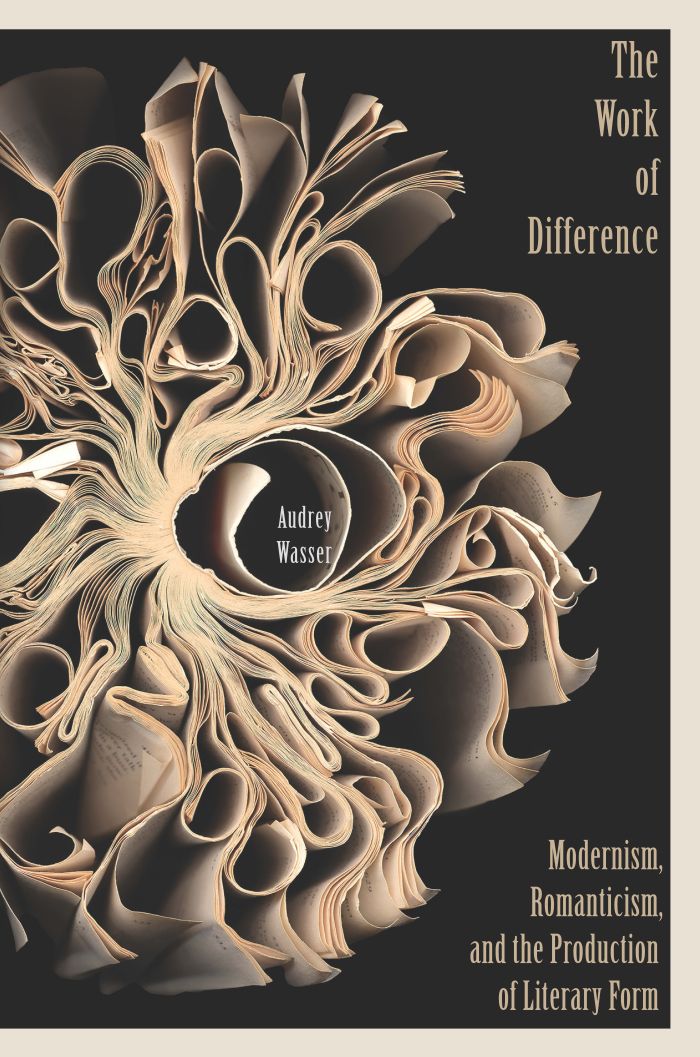The Work of Difference
Modernism, Romanticism, and the Production of Literary Form

This book can be opened with

Lucid and beautifully written, The Work of Difference gives us an ontology of literature that is at once theoretical and practical. Audrey Wasser not only teaches us what literature can be but also what it can do and how it works in its most groundbreaking operations. Combining profound new readings of major modernist writers (Proust, Beckett, Stein) with a sophisticated philosophical understanding of Deleuze, The Work of Difference develops an innovative theory of literary production. Equally at home in conceptual thinking and rhetorical close reading, Wasser is an important new critic to reckon with.——Martin Hägglund, Yale University
Wasser's expansion of the repertoire of critical questions typically asked of the work of literature succeeds in opening up ways of reading focused less on what a particular work or genre of literature might mean, and more on its production—through its rhetorical capacities—of what is continuously and innovatively new in the world.—Modernism/Modernity
...Wasser's achievement is a considerable one, and this book deserves a wide readership. In a literary-critical landscape too often cowed by the imperatives of context to ignore the immanent productivities of literary form, we have in this book a work of great theoretical depth and superlative imagination that captures better thanmost the sources and consequences of that energy.—Novel: A Forum on Fiction
The Work of Difference is an engaging, accessible, and insightful study... its focus on the brief but rich moment in romantic history is an important contribution to scholarly debate and will provide a welcome new paradigm for the rethinking of modernism's relationship to modernity.—Studies in the Novel
As philosophically rich as it is provocative, Audrey Wasser's The Work of Difference is a book about many things: the rhetoric of modernist fiction, the lingering presence of romantic ideals in twentieth-century criticism, and the relevance of Deleuze's ontology to thinking about the production of literary works.—Syndicate
Wasser's book... stands as a testament to the current relevance of rethinking modernism and the new along the lines of a literary ontology of difference and offers a renewed understanding of form that challenges romantic conceptions of literature and subjectivity.—Twentieth-Century Literature

